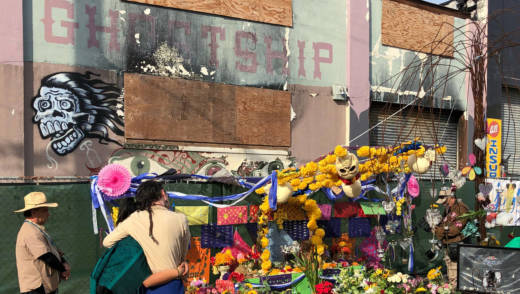But Serra, who represents Almena, questioned Bowron's approach during cross examination, suggesting the battalion chief should've prioritized rescuing show-goers trapped inside.
Serra asked, "Isn't it a fact that the largest motive you have is to protect the City of Oakland from civil liability?"
"That's not why I'm here," Bowron said.
Bowron said that although he initially believed the warehouse had only one floor and was not aware of a side exit, receiving the information earlier would not have changed his firefighting strategy. Because the second floor was more of a storage loft, not a sealed floor, the show-goers were "suspended in the worst possible place to be in a fire," Bowron said. "There was no safe space on the second floor."
Upon his arrival, Bowron said a bystander told him there were people trapped inside. But by that point, there was no "survivability," he said, adding that he worried some of his own firefighters had perished.
Bowron's colleague, fire department Battalion Chief Heather Mozdean, was one of the first to arrive at the scene and got there before Bowron. She testified on Wednesday that the blaze was "the most difficult one I’ve ever fought."
Prosecutors say the codefendants each charged with 36 counts of involuntary manslaughter — master tenant Almena and Harris, who has been called creative director or second in command — ran the warehouse known as Ghost Ship as an illegal residence and event space with a willful disregard for safety. The defense says their clients are being scapegoated, assigning blame instead to city officials and the landlord.
The civil lawsuit Serra referred to involves dozens of plaintiffs and defendants, including property owners the Ng family, Pacific Gas & Electric Co. and the City of Oakland. The assertion that firefighters' performance couldn't have been better, Serra told reporters after trial, is a "bunch of bologna."
